Pruitt ready to go after emissions violators: U.S. Environmental Protection Agency chief Scott Pruitt is ready and willing to apply his aggressive, combative stance to automakers who are violating emissions rules, as Volkswagen AG was caught doing by the agency in September 2015. Fiat Chrysler 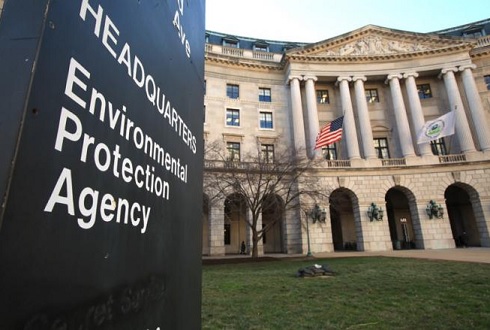 Automobiles was sued by EPA in May, accused of illegally using software to bypass emission controls in 104,000 diesel engine Ram pickups and Jeep Grand Cherokees sold since 2014. He doesn’t think the Obama administration was being too aggressive when taking action on emissions violations, and it’s the duty to EPA to enforce the rules. “Look what VW, and Fiat – you have this Fiat case that is on the horizon as well. The emails and the communications that I’m aware of – it was strategic and intentional and should be dealt with very aggressively,” Pruitt said.
Automobiles was sued by EPA in May, accused of illegally using software to bypass emission controls in 104,000 diesel engine Ram pickups and Jeep Grand Cherokees sold since 2014. He doesn’t think the Obama administration was being too aggressive when taking action on emissions violations, and it’s the duty to EPA to enforce the rules. “Look what VW, and Fiat – you have this Fiat case that is on the horizon as well. The emails and the communications that I’m aware of – it was strategic and intentional and should be dealt with very aggressively,” Pruitt said.
Koch brothers back anti-EV video: A new video attacks electric cars as losing their environmental contributions based on what’s going into their batteries. The information used in biased and used to set up an argument against the technology. It was made by Fueling U.S. Forward, which supports fossil fuels. It’s led by Charles Drevena, a long-time oil lobbyist, and is funded by the Koch brothers, who are known for advocating fossil fuels and denying climate change. The video claims that metals such as cobalt and lithium used in electric vehicle batteries come from morally reprehensible sources. One example given is the pollution and child labor problem from the metals in the Congo. While that is happening, automakers are practicing policies to avoid purchasing rare earth metals from these markets.
DOE research grants: The U.S. Department of Energy (DOE) announced $19.4 million for 22 new cost-shared projects to accelerate the research of advanced battery, lightweight materials, 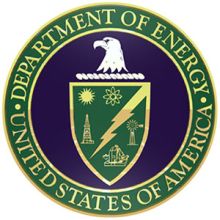 engine technologies, and energy efficient mobility systems. Mercedes Benz and General Motors are joining a long list of university research centers, including Lawrence Berkeley National Laboratory. Mercedes Benz is funding a project supporting solid state electrolyte membranes for high performance lithium-sulfur batteries; and GM is supporting research into pouch format cells for lithium-sulfur batteries to achieve high energy density and long cycle life.
engine technologies, and energy efficient mobility systems. Mercedes Benz and General Motors are joining a long list of university research centers, including Lawrence Berkeley National Laboratory. Mercedes Benz is funding a project supporting solid state electrolyte membranes for high performance lithium-sulfur batteries; and GM is supporting research into pouch format cells for lithium-sulfur batteries to achieve high energy density and long cycle life.

 model to roll off the production line. Tesla board member Ira Ehrenpreis had been the first make a down payment on the Model 3, but had turned over his rights to the first production model to Musk as a birthday gift. Musk, who turned 46, had previously purchased the very first Tesla Roadster and Model X, but not the Model S. The company is scheduled to deliver 30 of these units by the end of this month and aims to reach 20,000 units per month by December.
model to roll off the production line. Tesla board member Ira Ehrenpreis had been the first make a down payment on the Model 3, but had turned over his rights to the first production model to Musk as a birthday gift. Musk, who turned 46, had previously purchased the very first Tesla Roadster and Model X, but not the Model S. The company is scheduled to deliver 30 of these units by the end of this month and aims to reach 20,000 units per month by December.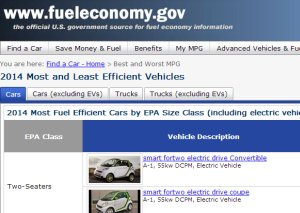 offers an effective policy solution that will increase adoption of PEVs. That will be the case whether implemented alone or with another policy such as government incentives, according to the study. The current standards determine an automaker’s compliance based on annual production volume-weighted average fuel economy of the automaker’s fleet of total vehicles manufactured. The Trump administration is expected to wait until the original deadline of April 2018 to finalize the second phase of rules through 2025; and will probably soften the standards. Selling much higher volumes of PEVs would resolve that problem; automakers will be motivated to build a wide selection of PEV models and market them effectively to hit federal targets, even if softened by the Trump administration.
offers an effective policy solution that will increase adoption of PEVs. That will be the case whether implemented alone or with another policy such as government incentives, according to the study. The current standards determine an automaker’s compliance based on annual production volume-weighted average fuel economy of the automaker’s fleet of total vehicles manufactured. The Trump administration is expected to wait until the original deadline of April 2018 to finalize the second phase of rules through 2025; and will probably soften the standards. Selling much higher volumes of PEVs would resolve that problem; automakers will be motivated to build a wide selection of PEV models and market them effectively to hit federal targets, even if softened by the Trump administration.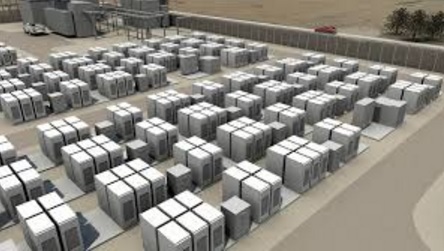 a tweet CEO Elon Musk made in March to back up South Australia with 100-megawatt-hour battery storage in 100 days or it would be free. That part of Australia has been devastated by power outages. It will be the largest lithium-ion battery storage project in the world, surpassing the second largest – an 80-MW facility in California – also supplied by Tesla Energy. Power will comes from a wind farm operated by France’s Neoen, and will be able to light up 30,000 homes in another blackout were to occur.
a tweet CEO Elon Musk made in March to back up South Australia with 100-megawatt-hour battery storage in 100 days or it would be free. That part of Australia has been devastated by power outages. It will be the largest lithium-ion battery storage project in the world, surpassing the second largest – an 80-MW facility in California – also supplied by Tesla Energy. Power will comes from a wind farm operated by France’s Neoen, and will be able to light up 30,000 homes in another blackout were to occur. House Budget for the next fiscal year wants to eliminate funds for Clean Cities as part of the proposed 73% cut to DOE’s overall Vehicle Technologies program. You can help save Clean Cities by adding your name to TEP’s national letter to the Congressional appropriations leaders. You’re also encourage to contact your Members of the House and Senate directly and urge them to protect funding for the DOE Clean Cities program.
House Budget for the next fiscal year wants to eliminate funds for Clean Cities as part of the proposed 73% cut to DOE’s overall Vehicle Technologies program. You can help save Clean Cities by adding your name to TEP’s national letter to the Congressional appropriations leaders. You’re also encourage to contact your Members of the House and Senate directly and urge them to protect funding for the DOE Clean Cities program. 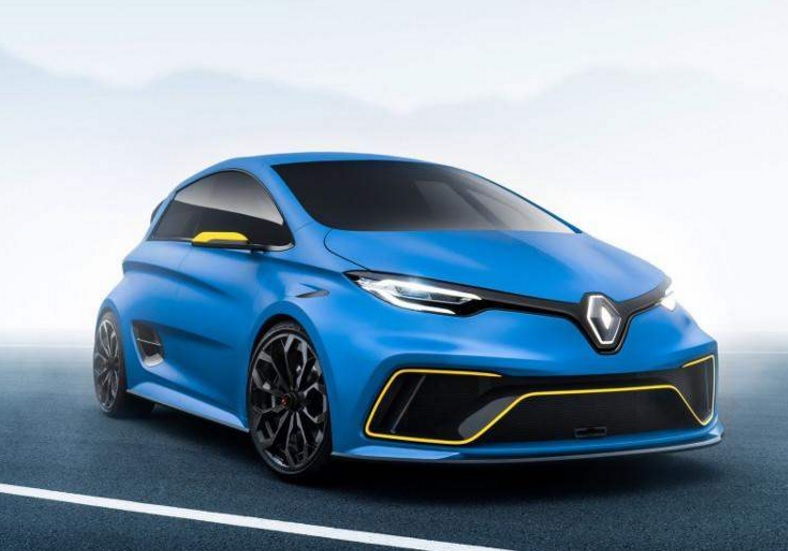 Trump has pulled the U.S. out of it. France aims to be carbon neutral by 2050 to honor the agreement. He acknowledged that stopping sales of fossil-fuel powered vehicles would be a “revolution,” solutions are available and French automakers would be up to the task. Typical to markets around the world, electrified vehicles only make for a small share of total vehicle sales. During the first half of this year, gasoline and diesel vehicles made for 95.2% of new vehicle sales in France; hybrids made up about 3.5% and plug-in electrified vehicles made up about 1.2% of the market. The Renault Zoe, seen in this image in its e-Sport Concept version, has been a top seller in France and throughout Europe.
Trump has pulled the U.S. out of it. France aims to be carbon neutral by 2050 to honor the agreement. He acknowledged that stopping sales of fossil-fuel powered vehicles would be a “revolution,” solutions are available and French automakers would be up to the task. Typical to markets around the world, electrified vehicles only make for a small share of total vehicle sales. During the first half of this year, gasoline and diesel vehicles made for 95.2% of new vehicle sales in France; hybrids made up about 3.5% and plug-in electrified vehicles made up about 1.2% of the market. The Renault Zoe, seen in this image in its e-Sport Concept version, has been a top seller in France and throughout Europe.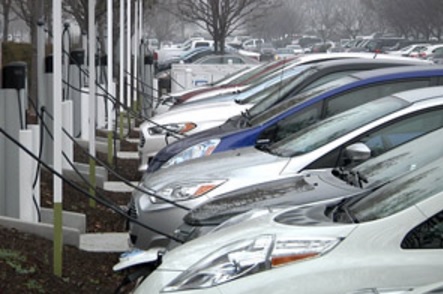 Virginia, Michigan, Minnesota, and California, have enacted new fees this year. Six other states have introduced legislation this year that would require PEV owners to pay a separate fee, including Indiana, South Carolina, Kansas, Tennessee, New Hampshire, and Montana. Vermont and Oregon are considering a fee based on vehicle miles traveled, rather than fuel type, but these rules may not pass through. PEV fees have been passed to pay for more transportation infrastructure upgrades, and to make up for lost tax revenue that PEV drivers don’t have to pay in gasoline and diesel taxes. Incentives are being added to get consumers to buy these cars, but the fees are mostly being charged on an annual, recurring basis.
Virginia, Michigan, Minnesota, and California, have enacted new fees this year. Six other states have introduced legislation this year that would require PEV owners to pay a separate fee, including Indiana, South Carolina, Kansas, Tennessee, New Hampshire, and Montana. Vermont and Oregon are considering a fee based on vehicle miles traveled, rather than fuel type, but these rules may not pass through. PEV fees have been passed to pay for more transportation infrastructure upgrades, and to make up for lost tax revenue that PEV drivers don’t have to pay in gasoline and diesel taxes. Incentives are being added to get consumers to buy these cars, but the fees are mostly being charged on an annual, recurring basis. 2019. Five all-electric models will come out between 2019 and 2021, three under the Volvo brand and two under Polestar. These five cars will also have other electrified options that may include gasoline and diesel plug-in hybrids and 48-volt options. The Polestar high-performance electric model was launched last month. The product changeover ties into the company’s commitment to minimizing its environmental impact and making the cities of the future cleaner.
2019. Five all-electric models will come out between 2019 and 2021, three under the Volvo brand and two under Polestar. These five cars will also have other electrified options that may include gasoline and diesel plug-in hybrids and 48-volt options. The Polestar high-performance electric model was launched last month. The product changeover ties into the company’s commitment to minimizing its environmental impact and making the cities of the future cleaner. according to a recent report to investors from analyst Alexander Potter of Piper Jaffray. Potter gave Allison Transmission Holding an “underweight” investment rating, advising investors to reduce their holdings in the company. Potter said that several companies, including engine maker Cummins and truck manufacturers Paccar, Navistar, and Scania, are investing in electric vehicle research and projects, potentially leaving Allison behind. While they’re still prototypes and pilot projects for now, the financial outlook will be affected for companies providing components to the industry, he said. Electric buses will provide some of the powertrain technology needed in heavy-duty trucks.
according to a recent report to investors from analyst Alexander Potter of Piper Jaffray. Potter gave Allison Transmission Holding an “underweight” investment rating, advising investors to reduce their holdings in the company. Potter said that several companies, including engine maker Cummins and truck manufacturers Paccar, Navistar, and Scania, are investing in electric vehicle research and projects, potentially leaving Allison behind. While they’re still prototypes and pilot projects for now, the financial outlook will be affected for companies providing components to the industry, he said. Electric buses will provide some of the powertrain technology needed in heavy-duty trucks. production model is expected to go off the line this Friday. The first 30 will be delivered to customers on July 28th at a handover party. Musk said the company expects the first 100 cars will be finished in August, and then the ramp up will start with 1,500 or more September. It’s looking like 20,000 per month can be built beginning December, he tweeted. The Model 3 is on track to break the company’s pattern of delaying production and delivery of the Model S and especially the Model X.
production model is expected to go off the line this Friday. The first 30 will be delivered to customers on July 28th at a handover party. Musk said the company expects the first 100 cars will be finished in August, and then the ramp up will start with 1,500 or more September. It’s looking like 20,000 per month can be built beginning December, he tweeted. The Model 3 is on track to break the company’s pattern of delaying production and delivery of the Model S and especially the Model X.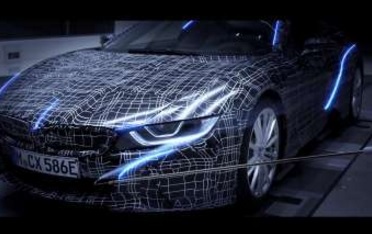 place, covered in camouflage, and being blown over in a wind tunnel. That suggests the i8 Roadster is moving forward in factory and road testing so that it can go to production level. It will be the third member of the i-Series vehicles, and BMW is expected announce the fourth member sometime this year. In May of last year, BMW’s chief Harald Kruger confirmed during a press conference in Munich that the i8 Roadster has been approved for production.
place, covered in camouflage, and being blown over in a wind tunnel. That suggests the i8 Roadster is moving forward in factory and road testing so that it can go to production level. It will be the third member of the i-Series vehicles, and BMW is expected announce the fourth member sometime this year. In May of last year, BMW’s chief Harald Kruger confirmed during a press conference in Munich that the i8 Roadster has been approved for production.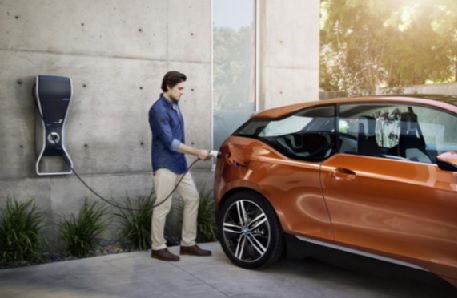 SpA chief Francesco Starace said in an interview in Rome that his company will be investing nearly 300 million euros ($341 million) to install about 12,000 recharging spots across Italy. These vehicles will need a larger charging infrastructure. Starace said that electric cars could help stabilize the grid. It will also provide a small revenue stream to users when they’re recharging through a new ‘vehicle to grid’ technology in Italy. Electric cars become large mobile batteries able to interact with the power grid, supporting renewable energy and helping to balance out power flow.
SpA chief Francesco Starace said in an interview in Rome that his company will be investing nearly 300 million euros ($341 million) to install about 12,000 recharging spots across Italy. These vehicles will need a larger charging infrastructure. Starace said that electric cars could help stabilize the grid. It will also provide a small revenue stream to users when they’re recharging through a new ‘vehicle to grid’ technology in Italy. Electric cars become large mobile batteries able to interact with the power grid, supporting renewable energy and helping to balance out power flow. few of its models in plug-in hybrid form already. The company has sold 1,373 units of the 3-series plug-in hybrids in the US, this year through May, according to HybridCars’ Dashboard. An all-electric 3-series would join the BMW i3 as another BMW battery electric model. Months ago, BMW CEO Harald Krueger said that the company would be making a push toward more electrification and connected features. Sales of the i3 have not been as strong as Tesla and Chevy models; and sales of the i8 supercar have been weak lately. The 3-series is one of the most popular BMW models, which could help spike its electric car sales.
few of its models in plug-in hybrid form already. The company has sold 1,373 units of the 3-series plug-in hybrids in the US, this year through May, according to HybridCars’ Dashboard. An all-electric 3-series would join the BMW i3 as another BMW battery electric model. Months ago, BMW CEO Harald Krueger said that the company would be making a push toward more electrification and connected features. Sales of the i3 have not been as strong as Tesla and Chevy models; and sales of the i8 supercar have been weak lately. The 3-series is one of the most popular BMW models, which could help spike its electric car sales.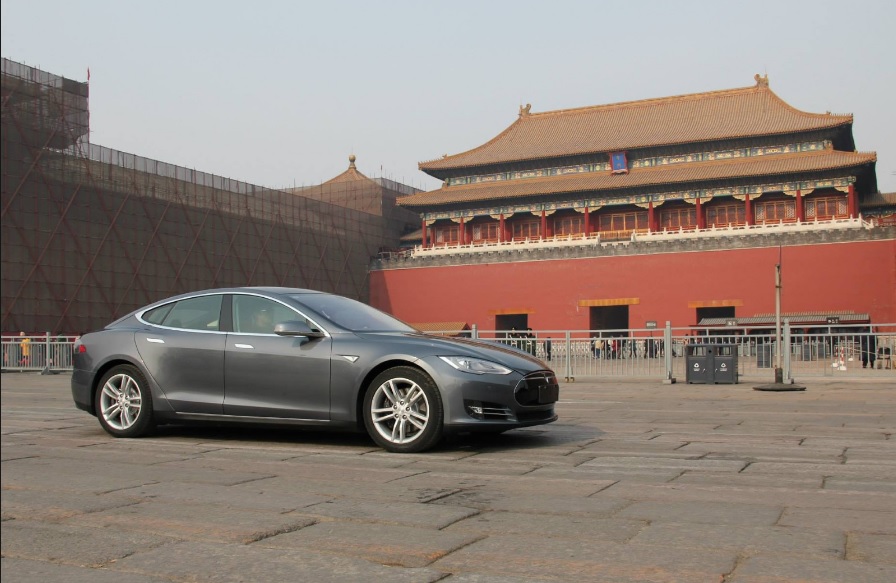 “explore the potential” of setting up shop in China. Last year, Tesla earned $1.1 billion in revenue from sales in China, a figure equivalent to 15% of its worldwide revenue. The challenge has been that not having a factory in China means you pay 25% tariff and have to spike up the sticker prices on cars being sold there. There’s also the issue of the Chinese government requiring foreign companies to create joint ventures with a local Chinese automaker. That’s the case for every automaker with factories there now, but it may be outside consideration for Tesla. The U.S. company is well known for doing things its own way, unlike other automakers typically forging alliances with other companies.
“explore the potential” of setting up shop in China. Last year, Tesla earned $1.1 billion in revenue from sales in China, a figure equivalent to 15% of its worldwide revenue. The challenge has been that not having a factory in China means you pay 25% tariff and have to spike up the sticker prices on cars being sold there. There’s also the issue of the Chinese government requiring foreign companies to create joint ventures with a local Chinese automaker. That’s the case for every automaker with factories there now, but it may be outside consideration for Tesla. The U.S. company is well known for doing things its own way, unlike other automakers typically forging alliances with other companies.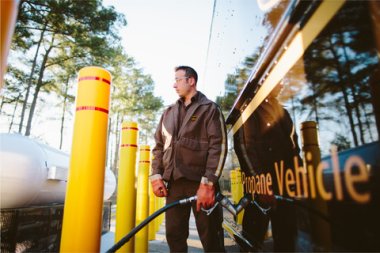 up from 16% last year from a ground vehicle fleet of about 114,000 vehicles overall. Green vehicles include electric, hybrid, hydraulic hybrid, or those that run on compressed natural gas, liquefied natural gas, and propane autogas. The company will be getting 40% of its ground fuel from sources other than conventional gasoline and diesel by 2024, doubling the 19.6% from 2016. The delivery company has a few trial projects in the works. As revealed at ACT Expo 2017, the company received the first of 17 hydrogen fuel cell vans that UPS will deploy by the end of 2018.
up from 16% last year from a ground vehicle fleet of about 114,000 vehicles overall. Green vehicles include electric, hybrid, hydraulic hybrid, or those that run on compressed natural gas, liquefied natural gas, and propane autogas. The company will be getting 40% of its ground fuel from sources other than conventional gasoline and diesel by 2024, doubling the 19.6% from 2016. The delivery company has a few trial projects in the works. As revealed at ACT Expo 2017, the company received the first of 17 hydrogen fuel cell vans that UPS will deploy by the end of 2018.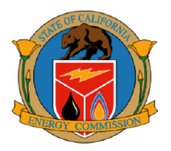 stations that will expand the infrastructure network were approved. FirstElement Fuel will develop eight hydrogen stations. Five will be in Southern California in Huntington Beach, Irvine, San Diego, Santa Monica, and Sherman Oaks. The remaining three will be in the Bay Area in Campbell, Oakland, and Sunnyvale. Air Liquide also received funds for a hydrogen refueling station in Santa Nella that will help connect Southern California and Bay Area hydrogen stations. The U.S. Dept. of Energy’s Alternative Fuel Station Locator map shows 36 hydrogen stations currently open in the U.S., with 33 of them in California.
stations that will expand the infrastructure network were approved. FirstElement Fuel will develop eight hydrogen stations. Five will be in Southern California in Huntington Beach, Irvine, San Diego, Santa Monica, and Sherman Oaks. The remaining three will be in the Bay Area in Campbell, Oakland, and Sunnyvale. Air Liquide also received funds for a hydrogen refueling station in Santa Nella that will help connect Southern California and Bay Area hydrogen stations. The U.S. Dept. of Energy’s Alternative Fuel Station Locator map shows 36 hydrogen stations currently open in the U.S., with 33 of them in California.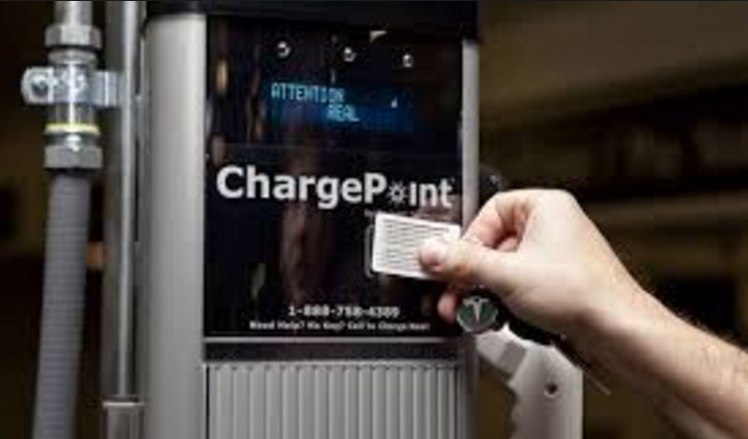 about 8,000 resident charging spots to the ChargePoint network. GE’s existing clients and drivers will be served through maintenance of GE’s existing software and commercial charging stations. GE customers with questions about the transition to ChargePoint can learn more
about 8,000 resident charging spots to the ChargePoint network. GE’s existing clients and drivers will be served through maintenance of GE’s existing software and commercial charging stations. GE customers with questions about the transition to ChargePoint can learn more 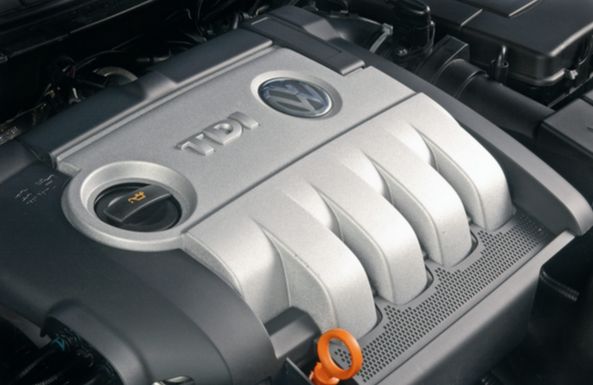 years after the Volkswagen “dirty diesel” scandal was reported by the U.S. Environmental Protection Agency. Germany, which plays a leading role in the European Union and is the home base for VW, has been taking a tough stance with automakers and their diesel vehicles. Diesel cars have been very popular in Germany, with VW, Audi, Mercedes, and BMW offering a long list of high-performance diesel cars; many of which will be going away. On Monday, the transport ministry was urging automakers to upgrade to realistic software on up to 12 million diesel vehicles in Germany; on Tuesday, that ministry announced creation of a “national diesel forum” to work with automakers and regional governments on emissions cuts.
years after the Volkswagen “dirty diesel” scandal was reported by the U.S. Environmental Protection Agency. Germany, which plays a leading role in the European Union and is the home base for VW, has been taking a tough stance with automakers and their diesel vehicles. Diesel cars have been very popular in Germany, with VW, Audi, Mercedes, and BMW offering a long list of high-performance diesel cars; many of which will be going away. On Monday, the transport ministry was urging automakers to upgrade to realistic software on up to 12 million diesel vehicles in Germany; on Tuesday, that ministry announced creation of a “national diesel forum” to work with automakers and regional governments on emissions cuts.